How we view events is shaped, or colored, by the lenses we wear. Those lenses can help us to see more clearly, or distort what we see.
When I lived in NH I found a pair of amber sunglasses in a store. This was before they were “tech glasses” and part of the “only sold of TV” brands that are now also sold in Wal-Mart. But I digress. I loved them because I could wear them at night due to the glare of headlights. But everything looked yellow. They helped me to see more, but also colored how I saw things.
Most of us lack self-awareness. We don’t realize the lenses we wear when we examine events. But like those amber lenses, they filter and sometimes distort. These lenses are part of our worldview, but not simply our worldview. They can reflect our experiences, and our idols. They are not simply ideological but can include that.
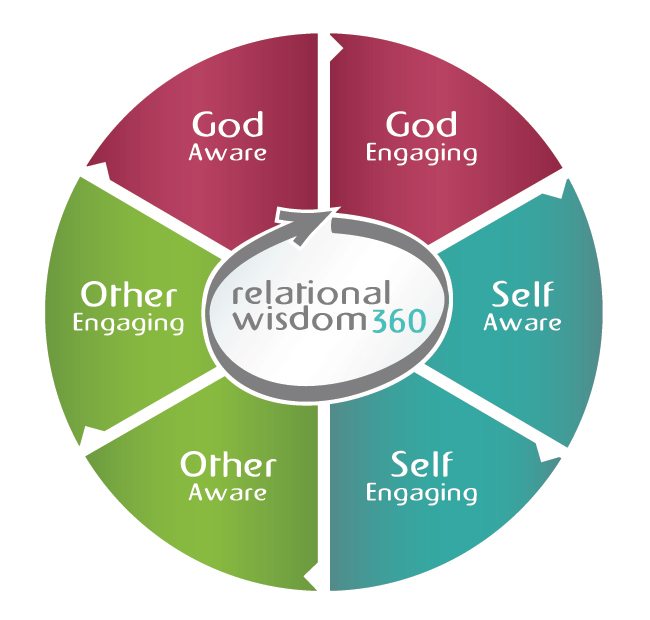
From the Relational Wisdom360 curriculum
I’ve written how the Covid-19 Controversy/Crisis reveals our idols. The crisis has produced controversy on a number of fronts connected to how to understand the disease, treat the disease and respond to the disease. Some people are aware of their lenses, and others …. not so much.
If we respond “You want people to die” (the new ‘you’re Hitler’) it’s probably a good indication that we lack both self-awareness and other-awareness. We haven’t stopped to think what drives us, what is driving them, and particularly what God thinks about both.
I thought I’d lay my cards on the table. Here are the lenses I am looking through to understand this controversy/crisis.
Pastor:
I am vocationally a pastor which means I am theologically trained. I am also trained as a counselor meaning, in both cases, I see theology as something to applied to personal lives. This has a number of doctrines in view but I’ll focus on the providence of God and our creation in the image of God.
This crisis is not accidental, and not arbitrary. It happens within God’s plan and purpose for both humanity and individuals. While the prospect of death and the loss of others I love is not pleasant, I’m not scared. The fact that I can’t control it doesn’t mean it is out of control. Or that the virus is in control. It doesn’t “speak” to us, though we gain information through data compilation and analysis.
If we were to ask why God would ordain a pandemic we’d have to add the doctrine of sin into the mix. I’m not talking about personal sin but Adam’s sin and our condition as sinners in a fallen world. Adam’s disobedience as our covenant head (representative before God) brought all of us into the consequences of sin: what we call the curse while on earth, and death. Adam sinned and everybody dies.
So, I’m NOT saying the people who die are bigger sinners than those who do. We are all in the same boat. We just die differently. Therefore I see death as ordinary, though often unexpected and untimely. The process of death can be quite unpleasant.
As a pastor I’ve been with people who knew they were dying (usually cancer), as well as with people as they die. I’ve heard death rattles, that final breath as people shed the mortal coil. I’ve had to face death up close and personal and therefore don’t live in a fairy tale land where people don’t die. They die every single day and nothing we do will stop that.
The providence of God doesn’t rule out what we call secondary means. We have responsibility to take reasonable means in the case of a pandemic. So, don’t interpret what I’m saying as “do nothing, God will take care of it.” However, someone who takes even the greatest of measures for protection can get sick.
We were made in the image of God. There are a number of aspects to this. Here are a few: we were made to live in community and we were made to both work and rest.
H
Made in the likeness of this God, we were made to live in loving fellowship with God and other human beings- witnessed in the creation mandate to be fruitful and multiply and fill the earth, as well as God’s provision of marriage as a one flesh union. Made to love, I see our prolonged stay at home orders (like solitary confinement) to be contrary to our nature, devolving the image of God and therefore destructive to our mental health. As people with bodies as well as souls love includes both body and soul, and therefore this new norm of Zoom meetings is a sad, insufficient substitute. We criticize the younger generations as the text generation, but now we are becoming people who have to rely on it. We were made to hug, hold hands, shake hands etc., not withhold ourselves from each other assuming they have a deadly plague.
In Genesis 1-2 we see God working 6 days and resting on the 7th. God works, setting a pattern for us. That this is part of the image is clarified in the 10 Commandments (Ex. 20 & Deut. 5). We are to work 6 days (we forget this part) and rest one (many seem to resent this one). There can be reasons in God’s providence we don’t work (disability or unemployment). But for an otherwise healthy person to not work is difficult psychologically because we are made in God’s image.
I’ve been through periods of unemployment and the problem is far beyond the bank account. Men, in particular, struggle emotionally with not working outside the home. A man who does not work is more prone to drug abuse, depression and suicide. Families forced to stay at home, especially if one can’t work, is dangerous. We are already seeing increases in domestic violence, child abuse (sexual, physical and emotional) and suicides.
Sorry, Governor Cuomo, some of these are death, and some of these haunt people their whole lives. Look in the eyes of sexual abuse victim, Governor, and tell them if was for the greater good.(Yes, he ticks me off)
“You just want people to die!” minimizes the real suffering we are causing by our actions. Death is inevitable, sexual abuse, suicide, drug addiction & overdose are not.
Economist:
My undergraduate degree is in Economics. I went to Boston University long before AOC went there for her PhD in Economics. When I was there in the 80’s the professors frowned upon Keynesian economics (dependence upon government intervention instead of the self-correcting market). Von Mises and Hayak were never mentioned, but they pretty much could have been. Government intervention was seen as essentially “flattening the curve”: while making the correction less intense, it also prolonged the inevitable correction. Depressions and recessions became longer, not shorter. You don’t spend your way out, in part, because you create new problems.
Right now government expenditures are going through the roof and revenues are plummeting since many people are prohibited from working. This is unsustainable as some states are teetering on bankruptcy (due to decades of financial mismanagement brought to crisis point earlier than anticipated by the crisis) and looking to a federal government deeply in debt to bail them out. Other nations are in the same boat too! But money doesn’t grow on trees, it is earned. We are creating an unsupportable debt for our grandchildren and great-grandchildren so we can not work now.
Oh, you may say, we can just print more money. Well, that makes the money worth less and eventually worthless. During Carter’s presidency we had “stagflation”, high unemployment and high inflation. People weren’t working to make money and the value of what they made (or given to them by government) was diminishing so you could buy less and less with what little you had. Eventually you hit hyperinflation. Look at Venezuela, people!
Do we really want to do that to ourselves? To our children? Grandchildren? How many livelihoods is a life worth? In other words, how many lives do we have to trash to save a life? As a pastor, I care about and for those people. They aren’t just a statistic to me.
Am I heartless? No. I am a realist. People die, every day. We assume risk every day because we can’t afford to eliminate risk. People die in car accidents every day because we can’t afford to eliminate that possibility. This is but one example. But look at the other diseases people die from daily. We could potentially eliminate them but we can’t afford to. Even when we poor tons of money into research, decades don’t always produce the cure we want (cancer, Aids, Alzheimer’s etc.). We have to think of polio as the exception, not the rule. But plenty of people still die of leprosy, malaria and measles each year despite there being vaccines and treatments.
A Parent:
I love my kids. I want to be here for my kids, but I know that is not guaranteed. I learned that as a child. On one side of my house lived the Baileys. They had 2 kids younger than me. He died of cancer when they were about 7 and 5. On the other side was my friend Jason whose father died of a heart attack when we were about 8. I can’t control whether or not I’m around to see them graduate and get married. I want to be, and don’t take unnecessary risks.
I care about how my kids will live as adults. I don’t want them living on the dole. They are healthy and productive. They should be able to provide for themselves. But the choices we make as a nation now may rob them of that. Those choice may limit educational opportunities, vocational choices and their social/emotional health.
A Son (and Grandson):
I lost both of my grandfathers when I was 5. I’m thankful that my kids know their grandfathers. They have a gift I didn’t have. Not everyone gets that gift, and we’re not in control of that.
Earlier this year my mom died. She had Alzheimer’s. Her memory faded quickly, but her body didn’t. The insurance was going to run out this year. I hated what it was doing to my father, and could do to him financially. When she died from a stroke in January we grieved, and were relieved. Those things were not mutually exclusive. I know the sorrow of death, but I also know it is inevitable. And unpredictable. I don’t want people to die, but I accept that people do die.
I don’t expect everyone to agree with my take on the controversy. I don’t want everyone to die, but I acknowledge they will. There is nothing we can do about that. We may postpone it in some cases, but even that is under the providence of God. Our (American) God-wish is a fantasy. We do need to think about the living and what this does to them, not simply the sorrow but the life we are creating for them a few years down the road. We are left with difficult choices, and those require some compromises.
 019 was the Year of John Newton. This means I read his works throughout the year. In the 4th quarter I read the
019 was the Year of John Newton. This means I read his works throughout the year. In the 4th quarter I read the 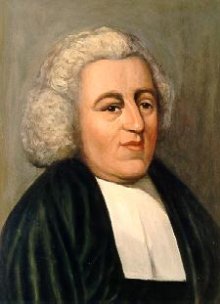 Let us not forget that Newton keeps bringing us back to Jesus, a Jesus he keeps exalting in a variety of ways. He wants us to look unto Jesus, not simply doctrinal positions.
Let us not forget that Newton keeps bringing us back to Jesus, a Jesus he keeps exalting in a variety of ways. He wants us to look unto Jesus, not simply doctrinal positions. ‘m aware of the irony. I’m writing this on a blog, part of social media, hoping people will read it. But I’m hoping they will go beyond this blog post to the book I’m writing about:
‘m aware of the irony. I’m writing this on a blog, part of social media, hoping people will read it. But I’m hoping they will go beyond this blog post to the book I’m writing about:  Meekness points us to the humility of accepting the difficult circumstances in our lives as part of God’s wise, loving providence. Following Thomas Watson (for Bridges loved the Puritans as well as hymns) he applies meekness toward other people in terms of “bearing of injuries, the forgiving of injuries, and the returning of good for evil.” We will all be subject to the sins of others against us. Humility does not retaliate but bears, forgives (!) and bestows good. This is so contrary to our prideful flesh what strikes out, bears grudges and tries to destroy the offender. Our words are often weapons we use against them.
Meekness points us to the humility of accepting the difficult circumstances in our lives as part of God’s wise, loving providence. Following Thomas Watson (for Bridges loved the Puritans as well as hymns) he applies meekness toward other people in terms of “bearing of injuries, the forgiving of injuries, and the returning of good for evil.” We will all be subject to the sins of others against us. Humility does not retaliate but bears, forgives (!) and bestows good. This is so contrary to our prideful flesh what strikes out, bears grudges and tries to destroy the offender. Our words are often weapons we use against them. Another aspect of humility is purity of heart or whole-heartedness. He ties this into the fact that we are not our own but have been bought with a price. We are property of Jesus, as Bob Dylan sang long ago. Purity of heart recognizes this and seeks to see all of life through that lens.
Another aspect of humility is purity of heart or whole-heartedness. He ties this into the fact that we are not our own but have been bought with a price. We are property of Jesus, as Bob Dylan sang long ago. Purity of heart recognizes this and seeks to see all of life through that lens. The second volume in
The second volume in  Next are 20 sermons preached in Olney. He begins a series of sermons on Matt. 11:25 on the lack of success the gospel ministry may meet due to the mysteries of the gospel being hid from many. He preaches 4 sermons on that text before moving on to verse 26. There he begins to assert the sovereignty of divine grace. In the 6th sermon he moves to the person of Christ in vv. 27. That includes authority. This means that the glory and grace of God are revealed in Christ. After these 3 sermons on vv. 27, he moves to vv. 28 to discuss our labor and heavy load what it means to come to Christ and the rest he provides. Yes, 3 sermons on that before addressing vv. 30. This may be why he didn’t generally preach thru books- he would have died before he finished one with so many sermons on individual verses.
Next are 20 sermons preached in Olney. He begins a series of sermons on Matt. 11:25 on the lack of success the gospel ministry may meet due to the mysteries of the gospel being hid from many. He preaches 4 sermons on that text before moving on to verse 26. There he begins to assert the sovereignty of divine grace. In the 6th sermon he moves to the person of Christ in vv. 27. That includes authority. This means that the glory and grace of God are revealed in Christ. After these 3 sermons on vv. 27, he moves to vv. 28 to discuss our labor and heavy load what it means to come to Christ and the rest he provides. Yes, 3 sermons on that before addressing vv. 30. This may be why he didn’t generally preach thru books- he would have died before he finished one with so many sermons on individual verses. As he reports the advice of Gamaliel, I wonder how often we should heed that. Many fads in theology have come and gone, but each time we act like this one is the end of the church as we know it, only for the controversy to die down and the movement or false doctrine to die out (like the emergent church, open theism etc.).
As he reports the advice of Gamaliel, I wonder how often we should heed that. Many fads in theology have come and gone, but each time we act like this one is the end of the church as we know it, only for the controversy to die down and the movement or false doctrine to die out (like the emergent church, open theism etc.). John Newton has long been one of my favorite ‘dead guys’. A few years ago Banner of Truth reformatted his
John Newton has long been one of my favorite ‘dead guys’. A few years ago Banner of Truth reformatted his 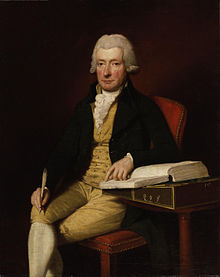
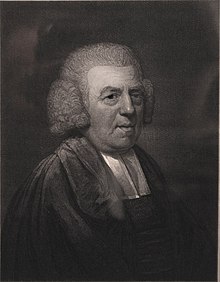 ewton doesn’t paint a picture of experiential religion that places us above and beyond sin. Rather, he struggles with his own heart, recognizing the temptations that arise both in private and public. In a number of places he wonders how a Christian can survive in London with all its temptations. This was before he was called to serve a church in London later in life. No pastors are called to serve in paradise. And neither is anyone else.
ewton doesn’t paint a picture of experiential religion that places us above and beyond sin. Rather, he struggles with his own heart, recognizing the temptations that arise both in private and public. In a number of places he wonders how a Christian can survive in London with all its temptations. This was before he was called to serve a church in London later in life. No pastors are called to serve in paradise. And neither is anyone else. This is a very short book, which is likely a good thing when you are struggling with betrayal and deep wounds. It is a simple book as well. It is laid out to help you quickly deal with an all to common problem. As I noted in my sermon yesterday, the church is a community of saints AND a community of sinners. We will hurt each other, sometimes deeply. Pastors sometimes not that sheep bite, and they do. The closer you are to that particular sheep, the more it hurts.
This is a very short book, which is likely a good thing when you are struggling with betrayal and deep wounds. It is a simple book as well. It is laid out to help you quickly deal with an all to common problem. As I noted in my sermon yesterday, the church is a community of saints AND a community of sinners. We will hurt each other, sometimes deeply. Pastors sometimes not that sheep bite, and they do. The closer you are to that particular sheep, the more it hurts. Who wouldn’t want to read John Calvin on
Who wouldn’t want to read John Calvin on 
 I’ve been studying the subjects of introverts and evangelism. How introverts evangelize to be precise. I want to help the introverts in our congregation to bear witness. This quest led me to Evangelism for the Rest of Us: Sharing Christ withing Your Personality Style by Mike Bechtle. So, if you are tired of reading about introversion, read no more. But I invite you anyway so perhaps you’ll recognize their faithfulness that went unnoticed by you before.
I’ve been studying the subjects of introverts and evangelism. How introverts evangelize to be precise. I want to help the introverts in our congregation to bear witness. This quest led me to Evangelism for the Rest of Us: Sharing Christ withing Your Personality Style by Mike Bechtle. So, if you are tired of reading about introversion, read no more. But I invite you anyway so perhaps you’ll recognize their faithfulness that went unnoticed by you before. If our wills are in bondage to our desires, which are corrupt, if there any hope for us?
If our wills are in bondage to our desires, which are corrupt, if there any hope for us?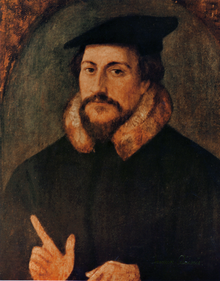 Even in his day, there were people claiming a form of Christian perfectionism. Some of the Anabaptists advocated this position. They think that regeneration is complete, and we have no more fleshly appetites.
Even in his day, there were people claiming a form of Christian perfectionism. Some of the Anabaptists advocated this position. They think that regeneration is complete, and we have no more fleshly appetites. The subtitle to
The subtitle to  Because our fundamental problem is sin, Bavinck focused not on social solutions to our problems, but brought us back to the gospel first (not only). People need to be restored to fellowship with God before they can see the real problems in society and apply God’s law to create an increasingly just society (as defined by God’s law which reflects His character). As a result, we must humbly accept the fact that there will be no perfectly just society until the return of Jesus because sin remains. Again, this does not mean fatalism but realistic expectations. It does mean we seek to address the real issues, not just the symptoms.
Because our fundamental problem is sin, Bavinck focused not on social solutions to our problems, but brought us back to the gospel first (not only). People need to be restored to fellowship with God before they can see the real problems in society and apply God’s law to create an increasingly just society (as defined by God’s law which reflects His character). As a result, we must humbly accept the fact that there will be no perfectly just society until the return of Jesus because sin remains. Again, this does not mean fatalism but realistic expectations. It does mean we seek to address the real issues, not just the symptoms. The time frame for Fury is a few months before VE Day. The U.S. forces have pushed into Germany and Germany has resorted to extreme methods like drafting women and children into the battle. This affects the plot, but does not drive the plot like D-Day does SPR. The plot of SPR has to do with saving the last remaining son of a widow in the aftermath of D-Day. Here we see a few instances of the cruelty and desperation of the SS, and the response of the main characters to the SS. In one scene, an SS officer is not allowed to surrender with the rest of the German “troops” (including teenaged girls).
The time frame for Fury is a few months before VE Day. The U.S. forces have pushed into Germany and Germany has resorted to extreme methods like drafting women and children into the battle. This affects the plot, but does not drive the plot like D-Day does SPR. The plot of SPR has to do with saving the last remaining son of a widow in the aftermath of D-Day. Here we see a few instances of the cruelty and desperation of the SS, and the response of the main characters to the SS. In one scene, an SS officer is not allowed to surrender with the rest of the German “troops” (including teenaged girls). Enter the newbie. In both cases it is a man who was not prepared for combat. In SPR he is Corporal Upham, a translator since they will be going behind the current lines to retrieve Ryan who was a paratrooper. Here it is a typist named Norman. He is not prepared for life in a tank or for combat. Much of the movie is about his struggle with the realities of war with which the other crew members are all too familiar. In his first two encounters there is failure that costs the lives of others. His sense of right and wrong have him ill-equipped for combat. But, as “Bible” Swan guesses, Norman is a “Mainliner” or liberal, nominal Christian.
Enter the newbie. In both cases it is a man who was not prepared for combat. In SPR he is Corporal Upham, a translator since they will be going behind the current lines to retrieve Ryan who was a paratrooper. Here it is a typist named Norman. He is not prepared for life in a tank or for combat. Much of the movie is about his struggle with the realities of war with which the other crew members are all too familiar. In his first two encounters there is failure that costs the lives of others. His sense of right and wrong have him ill-equipped for combat. But, as “Bible” Swan guesses, Norman is a “Mainliner” or liberal, nominal Christian. The final view of sanctification addressed in
The final view of sanctification addressed in  I will confess that I actually cheered for the Yankees to win the first year of their run with Jeter & company. It was about friendship, plain and simple. I’ve read books on Yankees stars: Ruth, Gehrig, Mantle. So, I’m not a complete homer.
I will confess that I actually cheered for the Yankees to win the first year of their run with Jeter & company. It was about friendship, plain and simple. I’ve read books on Yankees stars: Ruth, Gehrig, Mantle. So, I’m not a complete homer. Riveria sees God’s hand at work in his life. This is one theme that runs through the book. There are also plenty of lessons about baseball and the choices that change a life forever. He provides the cautionary tale of Brien Taylor who was a #1 draft pick on his first minor league team. He admired Taylor’s smooth delivery and amazing results. He looked like he was going to deliver. But one night in the off season he came to his brother’s aid in a fight. His injured shoulder needed surgery and he was never the same. The player with tons of talent and expectations was out of baseball and eventually in prison but the guy no one expected to matter would become the greatest closer in history.
Riveria sees God’s hand at work in his life. This is one theme that runs through the book. There are also plenty of lessons about baseball and the choices that change a life forever. He provides the cautionary tale of Brien Taylor who was a #1 draft pick on his first minor league team. He admired Taylor’s smooth delivery and amazing results. He looked like he was going to deliver. But one night in the off season he came to his brother’s aid in a fight. His injured shoulder needed surgery and he was never the same. The player with tons of talent and expectations was out of baseball and eventually in prison but the guy no one expected to matter would become the greatest closer in history. The time was ripe for Rosaria Butterfield’s recent book
The time was ripe for Rosaria Butterfield’s recent book  In the first section of his book
In the first section of his book  I’m just an ordinary PCA pastor (not to be confused with Erik Raymond,
I’m just an ordinary PCA pastor (not to be confused with Erik Raymond,  If I could summarize the book oh so briefly I’d say: If you like his other books, you’ll like this book. If you don’t, you probably won’t. If you haven’t read any of Keller’s books, what are you waiting for?
If I could summarize the book oh so briefly I’d say: If you like his other books, you’ll like this book. If you don’t, you probably won’t. If you haven’t read any of Keller’s books, what are you waiting for? There are books galore about the Christian life. Some of great, and some … well, aren’t so helpful. Some are heavy lifting, and not accessible to the average person i the pew. Some are so light, they are ultimately unhelpful.
There are books galore about the Christian life. Some of great, and some … well, aren’t so helpful. Some are heavy lifting, and not accessible to the average person i the pew. Some are so light, they are ultimately unhelpful.
